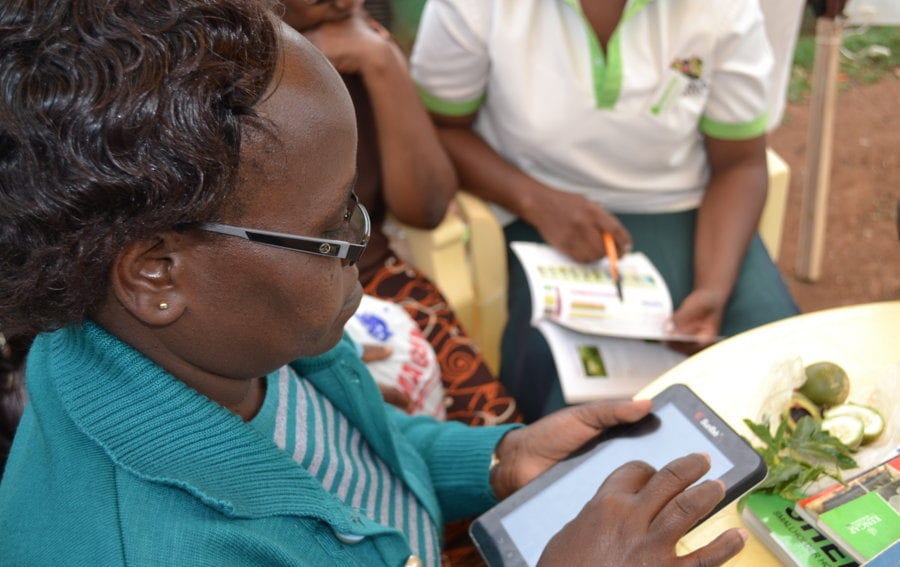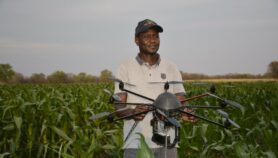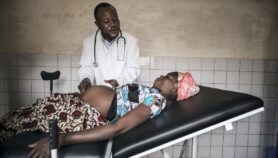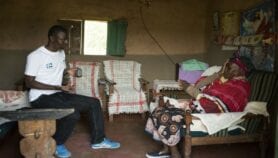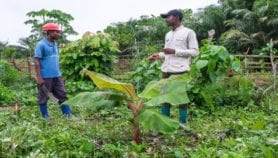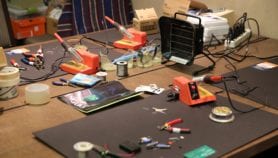Send to a friend
The details you provide on this page will not be used to send unsolicited email, and will not be sold to a 3rd party. See privacy policy.
[NAIROBI] A mobile app with information on crop pest control that aims to improve farmers’ productivity and livelihoods is undergoing trial in Kenya.
The app, called Plantwise Factsheets Library, stores information on how to handle crop diseases and pest problems, especially in remote locations in the developing world.
The app is accessible to both farmers and plant doctors — experts with a background in agriculture who have received training to operate plant clinics where they diagnose and treat crop diseases. The app is being trialled on Android phones and on low-cost Lenovo A3000 tablets.
“The main goal of the app is to improve food security by enabling farmers to produce more for consumption.”
Tim Holmes, Plantwise knowledge bank, CABI
The one-year trial, which started last Month (1 March), is funded by the UK Department for International Development as part of a £2 million (nearly US$3.4 million) investment aimed at developing innovating ways to reach farmers with Plantwise resources.
Plantwise, a global programme of CABI ― a worldwide not-for-profit organisation that offers scientific expertise, advice and resources to help solve problems in agriculture and the environment ― is running the project in partnership with White October, a UK-based web and mobile app organisation.
“The main goal of the app is to improve food security by enabling farmers to produce more for consumption,” says Tim Holmes, head of technical solutions for the Plantwise knowledge bank.
Holmes adds that plant doctors usually meet farmers during agreed time schedules at plant clinics with printed factsheets to give answers and guidance to farmers. But with the app, which aids timely information, plant doctors can now go to the farms, diagnose and solve farmers’ problems.
According to Holmes, the programme aims to deliver plant health knowledge to rural smallholder farmers to help control devastating crop pests, increase yields, help provide food for their families and improve their living conditions.
Once it becomes fully rolled out, farmers and plant doctors could access online and offline downloadable resources of the Plantwise global knowledge bank on any plant problems that have been resolved through the years, Holmes notes.
The pilot project hopes to strengthen Plantwise clinics owned and operated by more than 100 organisations worldwide that will provide open access knowledge banks supporting best-practice pest management, Holmes adds.
According to James Wanjohi, the head of extension at Kenya’s Ministry of Agriculture, by the third week of the pilot programme, 99 farmers in five plant clinics in five counties — Kiambu, Machakos, Nakuru, Embu and Tharaka Nithi — had used the service.
But Wanjohi says that plant doctors may face challenges such as no electricity to charge the devices in remote locations and intermittent internet connections.
Margaret Simba, a farmer from Embu West district, Kenya, says: “With Plantwise app, a plant doctor detected and treated Maize Lethal Necrosis Disease (MLN) in my farm”.
“It is not like before when you had to wait for a very long time to get diagnoses for your crops’ diseases. Now it happens very fast,” she adds.
This article has been produced by SciDev.Net's Sub-Saharan Africa desk.


